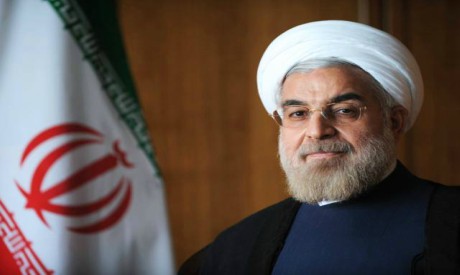
File Photo: Iranian President Hassan Rouhani (AFP)
The clock is ticking against Iran as the window of opportunity to save the Iran nuclear deal may be about to close if Tehran does not admit significant changes to its behaviour or enter into new talks with the US.
Not only the Iranians, but also the Europeans, apparently did not believe that US President Donald Trump would have been ready to re-instate such painful sanctions against companies doing business with Iran when the sanctions return in August and November.
Trump’s pullout from the Iran deal took place early in May, and the European efforts to save the accord are ongoing.
However, as European companies withdraw from their contracts in Iran for fear of US sanctions, the choices for Tehran are retreating, making it likely that it will have to accept the sanctions and the public anger that goes with them or make fundamental changes by accepting to negotiate with the US directly.
Last week in Vienna, EU foreign ministers promised Tehran to work on an economic package to cover some of the economic damage caused by the US withdrawal from the accord, though this will not be enough for Tehran.
Hardliners in the Iranian regime have been demanding that the EU fulfill the accord to the letter despite the US withdrawal, threatening to resume the Iranian nuclear programme if it does not do so.
However, most European companies have decided to halt business with Tehran before the US treasury imposes penalties on them for violating the US sanctions, including major players such as the Shell oil company, France’s Peugeot cars, and Austria’s Oberbank.
Europe wants to hold to the deal as an important agreement contributing to peace in the region and halting nuclear proliferation in the Middle East.
The French foreign minister told Iran on Friday in Vienna ahead of the first P4+1 meeting to stop threatening to withdraw from the deal. In the absence of the US, the remaining countries committed to the deal are the UK, France, Germany, Russia and China.
Jean-Yves Le Drian told Iran that threatening to leave the deal would not allow Europe to come up with an economic compensation package.
Meanwhile, Iranian President Hassan Rouhani has threatened to cut oil production in response to difficulties over the nuclear deal.
At a meeting with Iranian expatriates in Switzerland last Monday, Rouhani said the US wanted to prevent the export of Iranian oil, a move that the president said would be impossible to implement because “in that case no country in the region can export oil.”
“It would be meaningless to say that Iran cannot export its oil while others in the region can. Do this if you like and then see its consequences,” Rouhani said.
It is uncertain whether such threats are bluffs or whether Iran is set on revenge by dragging regional countries into the fray even as the US wants to keep them out of it.
In telephone calls on 5 July with German Chancellor Angela Merkel and French President Emmanuel Macron, Rouhani said that since the US withdrawal “Iran has been dealing with economic issues and problems in banking relations and oil” and foreign companies were “sceptical” about continuing their business in Iran, the Iranian Mehr News Agency reported.
The package of incentives proposed to Iran by the EU were “disappointing” and “lacked an operational solution and specific method for cooperation and featured just a set of general commitments,” Rouhani said.
The disappointment suffered by the Iranians and perhaps the difficulties of the EU ministers in having to promise anything specific to Tehran increase the chances that Tehran may pull out of the deal, violating the terms of its agreement with the International Atomic Energy Agency (IAEA), or accept backchannel talks with the US.
The EU says that it wants to hold to the Iran deal but that it needs time to come up with an economic package, which it cannot do before November. It will be hard for the Iranians to wait that long, just days before Trump is due to re-impose sanctions on Iran’s oil industry.
The clerical regime in Tehran enjoyed much good fortune under former US president Barack Obama, but now it is looking for ways to survive at least until the end of Trump’s presidency, hoping that he will not be re-elected as US president in 2020.
*A version of this article appears in print in the 12 July 2018 edition of Al-Ahram Weekly under the headline: Clock ticking against Iran
Short link: